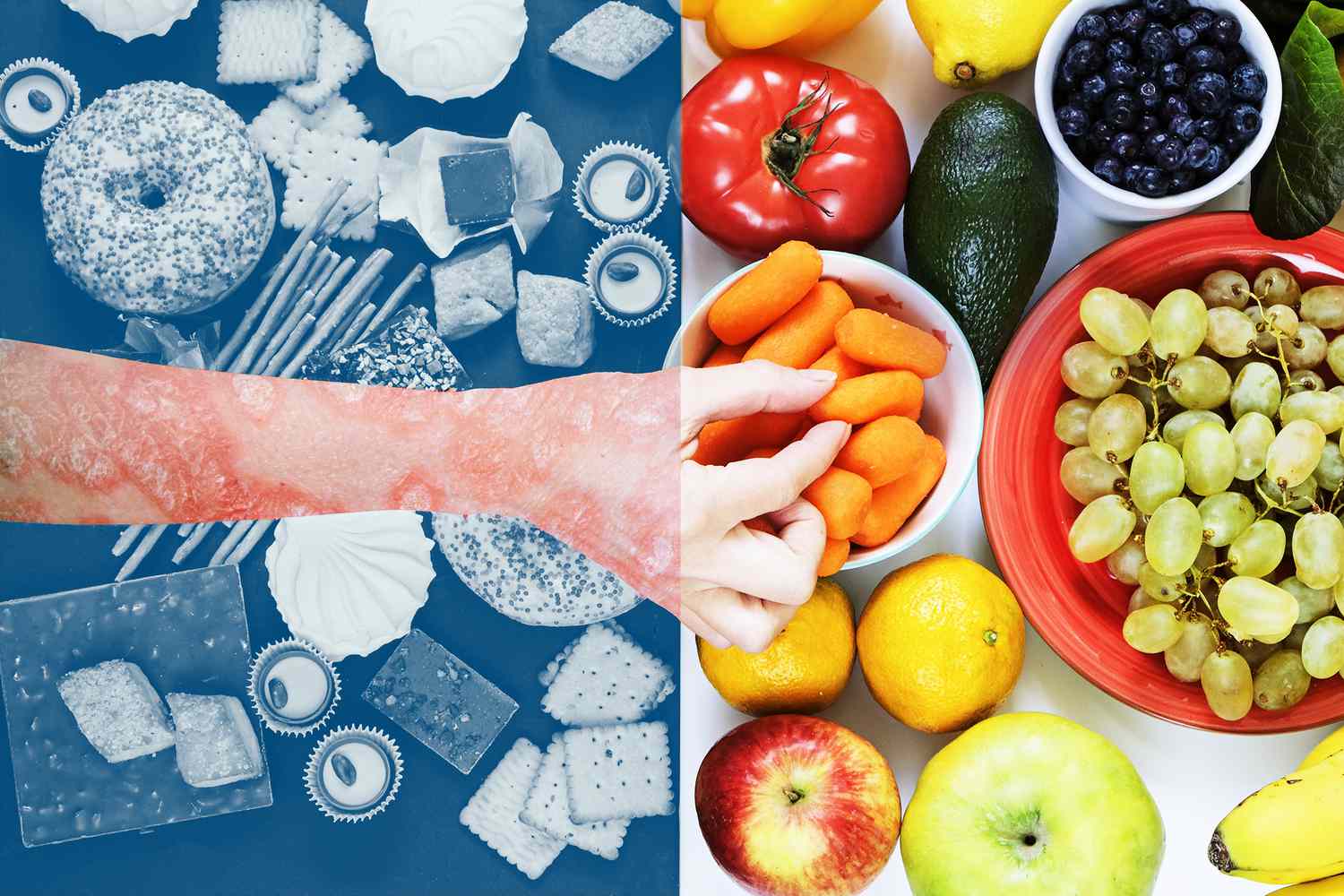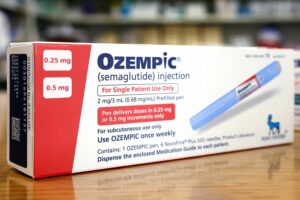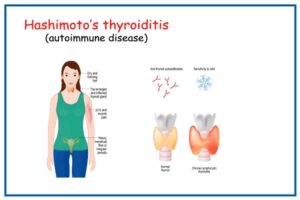When managing psoriasis, an autoimmune skin condition characterized by red, scaly patches, diet can play an essential role. While there is no definitive cure for psoriasis, certain foods can trigger or exacerbate flare-ups, while others can help soothe symptoms. If you or a loved one suffers from this condition, keep reading to discover the 12 best and worst foods for psoriasis.
Best Foods for Psoriasis
- Fatty Fish: Omega-3 fatty acids found in fish such as salmon, mackerel, and sardines are anti-inflammatory and can help reduce psoriasis flare-ups. Omega-3s work by decreasing the production of inflammatory chemicals in the body.
- Avocado: Avocados are not only delicious but are also packed with vitamins E and C, both known to support skin health. Furthermore, their natural fats are anti-inflammatory, which can help soothe psoriasis symptoms.
- Turmeric: Curcumin, the active compound in turmeric, has potent anti-inflammatory properties. Studies have shown that it can help reduce the symptoms of psoriasis. Consider incorporating turmeric into your dishes or taking curcumin supplements.
- Berries: Strawberries, blueberries, and raspberries are rich in antioxidants and vitamin C. These compounds can help combat inflammation, potentially easing psoriasis symptoms.
- Nuts and Seeds: Almonds, flaxseeds, and chia seeds are excellent sources of omega-3 and other nutrients that can help combat inflammation and promote healthy skin.
- Olive Oil: Olive oil is rich in antioxidants and has anti-inflammatory properties. Applying it directly to the skin can soothe psoriasis patches, and consuming it can promote overall skin health.
- Leafy Greens: Vegetables like spinach, kale, and Swiss chard are packed with vitamins A, C, and K. These nutrients can help support skin health and combat inflammation.
- Sweet Potatoes: These are a rich source of beta-carotene and antioxidants, both of which can support skin health and reduce inflammation.
- Broccoli: Broccoli is high in sulforaphane, an antioxidant that fights inflammation. Incorporating more of this vegetable into your diet can help manage psoriasis symptoms.
- Ginger: Ginger has strong anti-inflammatory properties that can help reduce psoriasis flare-ups. You can add ginger to dishes, and teas, or consume ginger supplements.
- Probiotic-rich foods: Foods like yogurt, kefir, sauerkraut, and other fermented foods can promote a healthy gut. A balanced gut microbiome can have a positive effect on the immune system and potentially help manage autoimmune conditions like psoriasis.
- Green Tea: Packed with polyphenols, green tea can help reduce inflammation and slow down the growth of skin cells in psoriasis.
Worst Foods for Psoriasis
- Alcohol: Excessive alcohol consumption can trigger psoriasis flare-ups. It dehydrates the skin and can interfere with certain psoriasis treatments.
- Processed Foods: High in additives, preservatives, and unhealthy fats, processed foods can aggravate inflammation and worsen psoriasis.
- Dairy Products: Some people with psoriasis find that dairy exacerbates their symptoms, possibly due to the inflammatory properties of certain proteins in dairy.
- Fried Foods: High in trans fats, fried foods can elevate inflammation levels in the body.
- Refined Sugars: Foods high in refined sugars can cause inflammation and may trigger psoriasis flare-ups.
- Gluten: Some people with psoriasis are sensitive to gluten, which can worsen their condition.
- Nightshades: Foods like tomatoes, peppers, eggplants, and potatoes belong to the nightshade family and can trigger flare-ups in some individuals.
- Spicy Foods: Some spices can trigger flare-ups in individuals with psoriasis.
- Soda and Sugary Beverages: High in sugar and additives, these drinks can aggravate inflammation.
- Junk Foods: High in unhealthy fats and sugars, junk foods can promote inflammation and exacerbate psoriasis symptoms.
- Processed Meats: Sausages, bacon, and other processed meats are high in unhealthy fats and additives that can worsen inflammation and psoriasis symptoms.
Conclusion
Remember, everyone is different. What may trigger a flare-up in one person might not in another. It’s essential to listen to your body and, if possible, work with a nutritionist or dermatologist to find the best diet for your unique needs. By incorporating the “12 best foods for psoriasis” into your diet and limiting the worst ones, you can potentially manage your symptoms more effectively. Remember, diet is just one aspect of managing psoriasis; always consult with your healthcare provider about other treatment options.
Sources:
- Fatty Fish and Omega-3s:
- Schagen, S. K., Zampeli, V. A., Makrantonaki, E., & Zouboulis, C. C. (2012). Discovering the link between nutrition and skin aging. Dermato-endocrinology, 4(3), 298-307. This paper discusses the benefits of omega-3 fatty acids in combating skin conditions.
- Turmeric and Curcumin:
- Aggarwal, B. B., Gupta, S. C., & Sung, B. (2013). Curcumin: an orally bioavailable blocker of TNF and other pro-inflammatory biomarkers. British journal of pharmacology, 169(8), 1672-1692. The anti-inflammatory properties of curcumin, found in turmeric, are elaborated in this paper.
- Dietary Impact on Psoriasis:
- Barrea, L., Nappi, F., Di Somma, C., Savanelli, M. C., Falco, A., Balato, A., … & Savastano, S. (2018). Environmental risk factors in psoriasis: The point of view of the nutritionist. International Journal of Environmental Research and Public Health, 15(5), 847. This comprehensive study looks at various dietary factors and their potential influence on psoriasis.
- Probiotic-rich foods:
- Groeger, D., O’Mahony, L., Murphy, E. F., Bourke, J. F., Dinan, T. G., Kiely, B., … & Shanahan, F. (2013). Bifidobacterium infantis 35624 modulates host inflammatory processes beyond the gut. Gut microbes, 4(4), 325-339. This research sheds light on the anti-inflammatory properties of certain probiotics, which can potentially influence conditions like psoriasis.
- Diet and Inflammation:
- Minihane, A. M., Vinoy, S., Russell, W. R., Baka, A., Roche, H. M., Tuohy, K. M., … & Calder, P. C. (2015). Low-grade inflammation, diet composition and health: current research evidence and its translation. The British journal of nutrition, 114(7), 999-1012. This paper discusses the broader context of how different foods can influence inflammation in the body.
- Minihane, A. M., Vinoy, S., Russell, W. R., Baka, A., Roche, H. M., Tuohy, K. M., … & Calder, P. C. (2015). Low-grade inflammation, diet composition and health: current research evidence and its translation. The British journal of nutrition, 114(7), 999-1012. This paper discusses the broader context of how different foods can influence inflammation in the body.
Please note that while these sources provide scientific grounding in the general areas discussed, they might not directly support every single claim made in the article. Further research and verification would be needed for a rigorous scientific article.



